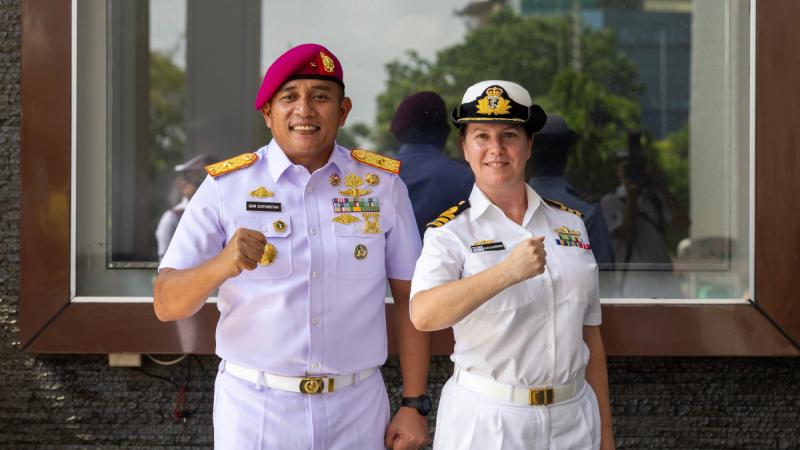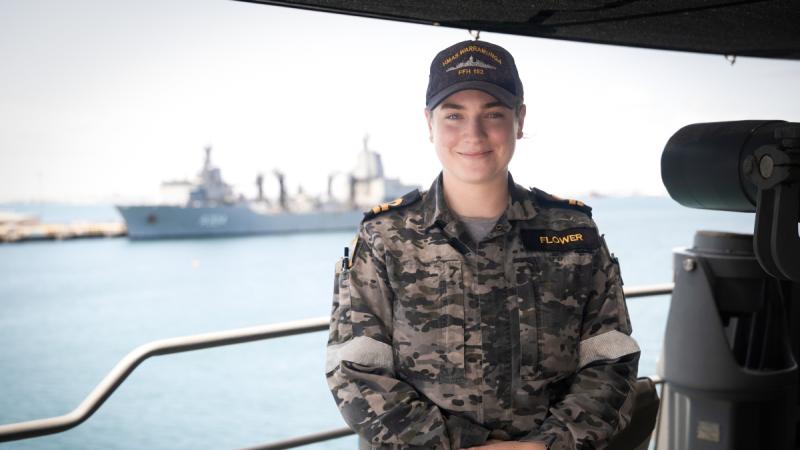4 July 2025
Australia’s support for the multi-national mission to train Ukrainian military personnel continues to evolve, three years after Russia’s 2022 invasion escalated a conflict that began in 2014.
Head of Australian Defence in London, Air Commodore Matthew Harper, said Australia’s support of the operation was “steadfast”.
“Our objectives are twofold – to support Ukraine to resolve the conflict on its terms, and to impose costs on Russia for its aggression,” Air Commodore Harper said.
On June 26, 2022, the United Kingdom launched what would evolve into a multi-national operation to train Ukrainian personnel – Operation Interflex – with an initial target to train 10,000 in six months.
It has now trained more than 56,000 personnel, with 13 countries involved including Australia.
To date, Australian Army personnel have trained more than 2900 members of the Ukrainian Armed Forces, under Operation Kudu, in an effort currently led by Major Tom Folley.
'The war on the ground has changed over the past three years and we are evolving.'
“It’s been an incredibly humbling experience to see guys who, five months ago, were civilians on the street,” Major Folley said.
“The company commander today is leading 140 Ukrainian recruits – he was also a civilian five months ago.”
Soldiers are trained in urban and trench warfare, weapons handling, battlefield first aid, field craft, patrol tactics and the Law of Armed Conflict.
The training has expanded to include a junior leader training program for section commanders, platoon commanders and company sergeants.
“The war on the ground has changed over the past three years and we are evolving,” Major Folley said.
“We are seeing better techniques and procedures in trench training, the integration of drones, as well as changes in the way we deliver our medical training,”
Corporal 'Harry', part of the 70-strong Australian contingent, said he was learning almost as much from the Ukrainians as they were from him.
“Drones have been the main thing for me,” he said.
“We touch on it a bit in Australia, but more as uncrewed aerial systems and reconnaissance, but the exercise we did a couple of weeks ago is my first experience as to how scary they sound in real life.”
Australian Army medic Private Bree said they had learnt a lot about what was going on in Ukraine and the types of injuries soldiers were sustaining.
“So much so that it is now starting to influence the way we train back home,” she said.
“Particularly given the issues around the time it takes to be able to evacuate a wounded soldier from the battlefield.”
'The Australian contingent, specifically under Operation Kudu, adds a huge amount to our coalition.'
The Ukrainians are grateful for Australia’s support.
“I want to thank you for helping us; it’s making a big difference on the battlefield,” 51-year-old Master Sergeant ‘Rahman’, a former mechanic, said.
Commander Operation Interflex, Colonel Andy Boardman, said the multi-national nature of the operation was one of its greatest strengths.
“It started off as a UK-only operation but very quickly became a multi-national operation, and the Australian contingent, specifically under Operation Kudu, adds a huge amount to our coalition,” Colonel Boardman said.
“The quality of the instructors is very high, and they deliver some really high-end leadership training to the Ukrainian Armed Forces.
“This is a long way from Australia but there’s a recognition, I think, of the shared requirement of all nations, particularly in the Five Eyes, to support Ukraine fighting for its freedom and sovereignty.”


